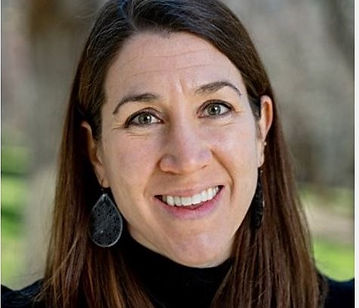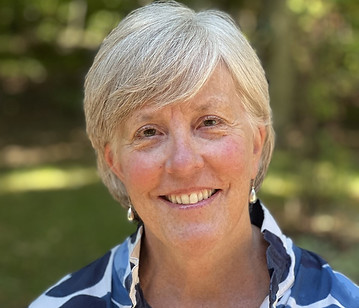
Meet The Team

Center Director
Erin Kahle,Ph.D, MPH
Dr. Kahle is an infectious disease epidemiologist with a program of research focusing on biological, interpersonal and structural factors associated with sexual and reproductive health (SRH) in vulnerable and marginalized populations, both domestically and globally. Her research efforts include identifying factors that influence SRH, barriers to accessing prevention and healthcare, and developing effective strategies to reduce adverse SRH outcomes. Her prior work includes extensive experience in public health and clinical research settings that informs her interest in how the intersection between behavior and biology affects health. Dr. Kahle has a specific research concentration in HIV prevention, including the design of effective, integrated behavioral and biomedical HIV prevention programs aimed at reducing HIV transmissions among sexual minorities and in resource-limited settings.

Associate Dean of Faculty Affairs and Faculty Development
Cynthia Arslanian-Engoren, Phd.
I am a cardiovascular nurse researcher whose work focuses on the prevention and risk reduction of cardiovascular diseases and the timely recognition of symptoms that warrant treatment evaluation. My research includes the study of self-care decision-making and disparities and biases in the treatment of coronary heart disease. I have studied the self-care decisions of women to reduce their risk of heart disease, the cardiac triage of emergency department nurses and the cognitive dysfunction and self-care decisions of older adults with heart failure. I have also examined the knowledge risk and perceptions and self-care behaviors and heart healthy behaviors of demographically and geographically diverse women using qualitative and quantitative methods. My work shows social support helps women engage in heart health behaviors to reduce their CVD risk and shows age and gender-based disparities in perception of CVD risk. Building on this work, I have extended it to examine CVD risk in sexual minorities. My work has been presented regionally, nationally and internationally and published in high-impact, prestigious journals (e.g., American Journal of Cardiology, American Journal of Critical Care, Circulation, European Journal of Cardiovascular Nursing, Journal of Cardiovascular Nursing, etc.).
%20-%20Erin%20Bonar.jpg)
Professor, Department of Psychiatry The Kathy Fant Brzoznowski Research Professor in Behavioral Health Technology Innovations
Erin E. Bonar, PhD.
Erin E. Bonar, Ph.D., is a licensed clinical psychologist and Professor with tenure in the Department of Psychiatry as well as an Adjunct Associate Professor in the Department of Psychology. She is the Director of Research Strategy for MI-ACRE. She studies ways to prevent and treat substance use disorders spanning developmental periods of adolescence, emerging adulthood and adulthood. Her work uses novel technologies including social media, telemedicine, and patient portal approaches. Her work often employs Motivational Interviewing and she is a member of the Motivational Interviewing Network of Trainers.

Assistant Professor
Craig Rodriguez-Seijas, PhD.
Dr. Rodriguez-Seijas was born and raised in Trinidad and Tobago. He completed his undergraduate training in psychology at the University of the West Indies. He completed his doctoral training in clinical psychology at Stony Brook University, and his predoctoral internship and postdoctoral fellowship at Brown University in the Methods to Improve Diagnostic Assessment and Services (MIDAS) track. Dr. Rodriguez-Seijas is an Assistant Professor in the Clinical Science area at the University of Michigan. He directs the Stigma, Psychopathology, and Assessment (SPLAT) Lab. His and his lab's current programs of research involve various ways of understanding (1) how dimensional models of psychopathology can improve diagnostic assessment and measurement and (2) factors that explain psychiatric disparities observed among LGBTQ+ individuals, and those from other minoritized backgrounds. Currently, these two lines of research overlap in a program aimed at understanding disparities in the diagnosis of borderline personality disorder among LGBTQ+ individuals.

Associate Professor
Akshay Sharma, MBBS, MPH, PhD.
Educated as a physician and an infectious disease epidemiologist, Dr. Sharma’s research interests include designing and evaluating new approaches for increasing the frequency of HIV and STI testing among sexual and gender minorities in the United States, with a focus on telehealth and home self-testing. He is also interested in comprehensive behavioral and biomedical interventions for HIV and STI prevention, barriers and facilitators to accessing healthcare, and epidemiologic study design and methodological issues. He is involved in both quantitative and qualitative research that seeks to further our understanding of novel means of delivering sexual health promotion and behavior change strategies to populations at elevated risk. Before moving to the United States, Dr. Sharma was involved in community HIV and STI risk reduction efforts such as encouraging safe sex and promoting the use of barrier contraceptives in resource-limited settings in India.
%20-%20Michelle%20Munro-Kramer_JPG.jpg)
Associate Professor & Director of Global Programs
Michelle Munro-Kramer, PhD, CNM, FNP-BC, FAAN
Dr. Michelle Munro-Kramer’s program of research focuses on gender-based violence prevention and response, primarily among college-age youth, within domestic and international contexts. As part of the inaugural Johnson & Johnson Nurse Innovation Fellowship, she is interested in leveraging nurses’ creativity to develop innovative solutions to complex health and human rights issues such as intimate partner violence, sexual violence, and human trafficking. Her research projects approach these topics using a trauma-informed and patient-centered lens. She uses mixed methods and participatory action research to understand the experiences of vulnerable populations in order to inform innovative future intervention development.

Assistant Research Scientist
Ali Walsh, PhD, MFA, MPH
Ali Walsh is an epidemiologist who conducts quantitative research investigating the social factors that contribute to health disparities and shape behavior, vulnerability, and outcomes in historically marginalized populations.

Clinical Associate Professor
Beth Kuzma, DNP, FNP-BC
Elizabeth Kuzma, DNP, RN, FNP-BC, is a Clinical Associate Professor at University of Michigan's School of Nursing (UMSN) in the Health Behavior and Clinical Sciences department. She is the Director of APRN Programs. As a Family Nurse Practitioner she is committed to working with vulnerable and underserved populations, particularly at-risk, high ACE youth. Dr. Kuzma is an expert in providing holistic, trauma-informed primary care with cultural humility, including health promotion, disease prevention, management of minor acute and chronic conditions. She has experience in nurse-managed care settings, school-based settings, in a local health department, and serving as a faculty preceptor/mentor at the UM student run free clinic for students from the health sciences (medicine, nursing, social work, dentistry, pharmacy). Her research and scholarship focus includes a variety of adolescent health issues, particularly related to trauma, sexuality and gender identity, as well as integrating these content areas into NP education.
%20-%20Yasamin%20Kusunoki.jpg)
Associate Professor
Yasamin Kusunoki, Phd, MPH
Yasamin Kusunoki, PhD, MPH, is an Associate Professor at the School of Nursing and a Research Associate Professor and Director of the Training Program at the Population Studies Center within the Institute for Social Research at the University of Michigan. Her research focuses on understanding and addressing sources of existing disparities in reproductive health behaviors and outcomes, particularly the role of social contexts such as intimate relationships, families, and communities. Investigations include the influence of multiple, dynamic social contexts on young women's risk of undesired pregnancy; the correlates and consequences of intimate partner violence victimization and reproductive coercion among young women; sexual violence victimization and perpetration among adolescents and young adults; and the integration of intimate partner violence interventions within reproductive health settings and substance use treatment services.

Professor
Barbara L. Brush PhD
Dr. Brush is a Professor in the Schools of Nursing and Public Health with extensive expertise in community health practice and research. Her scholarship focuses on community-engaged research, the history of science, academic-community partnership development and evaluation, and mixed-method and qualitative methodologies. Dr. Brush has applied a community-based participatory research (CBPR) approach to numerous projects. These include developing the MAPS Questionnaire to assess factors contributing to successful CBPR partnerships (MAPS Project), evaluating a nurse-led, trauma-focused narrative intervention for African American mothers experiencing homelessness, and designing strategies to increase African American and Black participation in cancer clinical trials. She has also participated in efforts to improve occupational safety for Vietnamese nail salon workers. As a dedicated faculty mentor in the University of Michigan CBPR Academy, Dr. Brush guides new researchers and their community partners in conducting research that addresses health disparities among marginalized populations. She has mentored numerous postdoctoral fellows, doctoral students, and early career faculty in translational and engagement science across nursing, medicine, and public health disciplines.

Clinical Professor
Ruth Zielinski PhD, CNM
I received my MS in Nursing – Midwifery Track in 1995 and Ph.D. in Nursing and Graduate Certificate in Women’s Studies from the University of Michigan in 2009. I am faculty and program lead for the Midwifery Graduate Program. My research expertise is in women’s health around body image and sexuality and maternal health outcomes both regionally and globally. I have over 30 years of experience as a nurse-midwifery and continues to practice, most recently in global settings. My PhD work was related to body image and sexual health focusing on the intersection of our understanding of pelvic floor muscle changes associated with childbirth and aging and the social stigma of body image. I currently lead an ongoing project conducting doula workshops in South Sudanese refugee communities in northern Uganda. Education is a primary goal in all of my endeavors, where reciprocal learning occurs between women in the camps, local health providers and UM faculty and students. Graduate students in midwifery and other disciplines are involved in the work in Uganda, as well as other endeavors in Myanmar, Liberia, Haiti, Mongolia, Kurdistan, and Ghana.